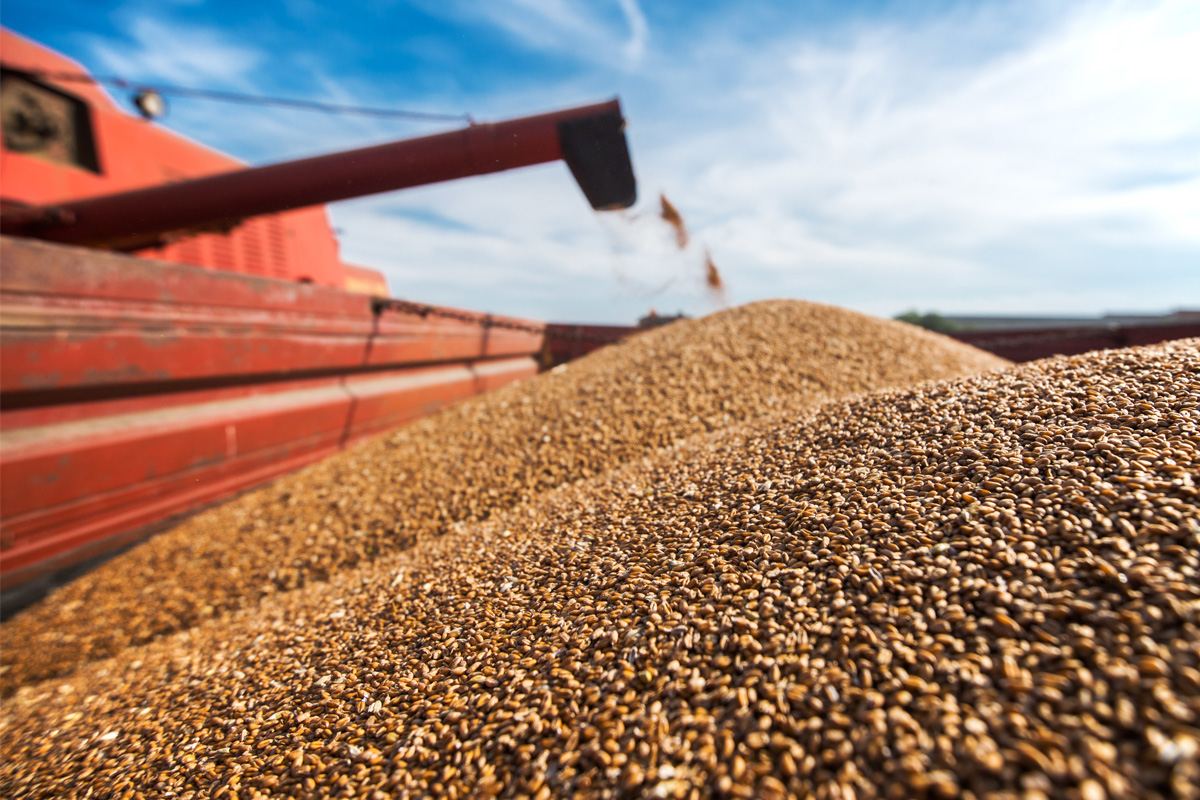Kazakhstan, Central Asia's largest grain producer, recently implemented a ban on wheat imports from other countries.
This move, initiated by the Kazakhstan Ministry of Agriculture, is set to last for six months, starting from October 11. It will encompass wheat imports via road from third countries and those within the Eurasian Economic Union (EEU).
The ban extends to rail imports, except for licensed elevators, grain processors, and poultry enterprises. Yadikar Ibragimov, Chairman of the Board of the National Association of Oilseed Processors (NAOP) of Kazakhstan, believes that the ban primarily aims to support local farmers adversely affected by drought conditions and maintain stability in the domestic wheat market.
At the same time, Ibragimov voiced concerns over the potential loss of competitiveness among domestic grain processors and poultry enterprises. According to him, these entities could import Russian wheat via road transport, a cost-effective and time-efficient option. With the ban in place, logistics costs will rise, and delivery times will lengthen. As a result, Kazakh products, including meat, eggs, and flour, may become less competitive when compared to Russian counterparts, which have been efficiently supplied to Central Asia.
Before the import ban was enforced, various estimates suggested that Kazakhstan imported approximately 1.5 million tons or more of wheat from Russia. The concern now revolves around the ability of customs officers to prevent the inflow of "gray" Russian grain via alternative routes.
In August, Kazakhstan extended the ban on the import of Russian wheat by road until April 10, 2024, with the intention of eliminating "gray schemes" of import and subsequent re-export. The adopted document notes that the imposed restrictions comply with the norms of the Treaty on the Eurasian Economic Union and are related to the need to regulate trade activities and ensure the national security of the Republic of Kazakhstan.
The annual cost of illegal wheat imports from border countries has been estimated at approximately $500 million, further highlighting the significance of these measures.
Kazakhstan boasts vast agricultural lands, covering approximately 202 million hectares, or 74 percent of the country's land, making it one of the world's largest countries by agricultural land area. The country's favorable geography and varied climate create a conducive environment for grain cultivation.
Key grain-producing regions in the country include the northern areas like Kostanay, Akmola, and North Kazakhstan, while large-scale production also takes place in East Kazakhstan, Abai, and Pavlodar.
Kazakhstan is Central Asia's largest grain producer, with the ability to export approximately half of its annual grain production. Wheat is the country's largest crop by acreage, accounting for 80% of grain production, but it also produces barley, cotton, sunflower seeds, and rice. Kazakhstan takes the lead in flour exports, mainly shipping to other Central Asian nations and Afghanistan.







 Azerbaijan and Armenia started the process of demarcation of their border on Tuesday, with the installation of the first border markers based on ge...
Azerbaijan and Armenia started the process of demarcation of their border on Tuesday, with the installation of the first border markers based on ge...
 President Aliyev emphasized the critical role of the North-South Transport Corridor in fostering transport cooperation between Azerbaijan and Russi...
President Aliyev emphasized the critical role of the North-South Transport Corridor in fostering transport cooperation between Azerbaijan and Russi...
 Iran and Pakistan have signed eight cooperation documents in various fields, and agreed to strengthen ties to fight terrorism in the region.
Iran and Pakistan have signed eight cooperation documents in various fields, and agreed to strengthen ties to fight terrorism in the region.
 As the conflict between Ukraine and Russia escalates, the strategic importance of Kharkiv, Ukraine's second-largest city, has come sharply into focus.
As the conflict between Ukraine and Russia escalates, the strategic importance of Kharkiv, Ukraine's second-largest city, has come sharply into focus.
 Iranian President Ebrahim Raisi expressed Tehran’s readiness to participate in significant development projects in Sri Lanka during the inauguratio...
Iranian President Ebrahim Raisi expressed Tehran’s readiness to participate in significant development projects in Sri Lanka during the inauguratio...



